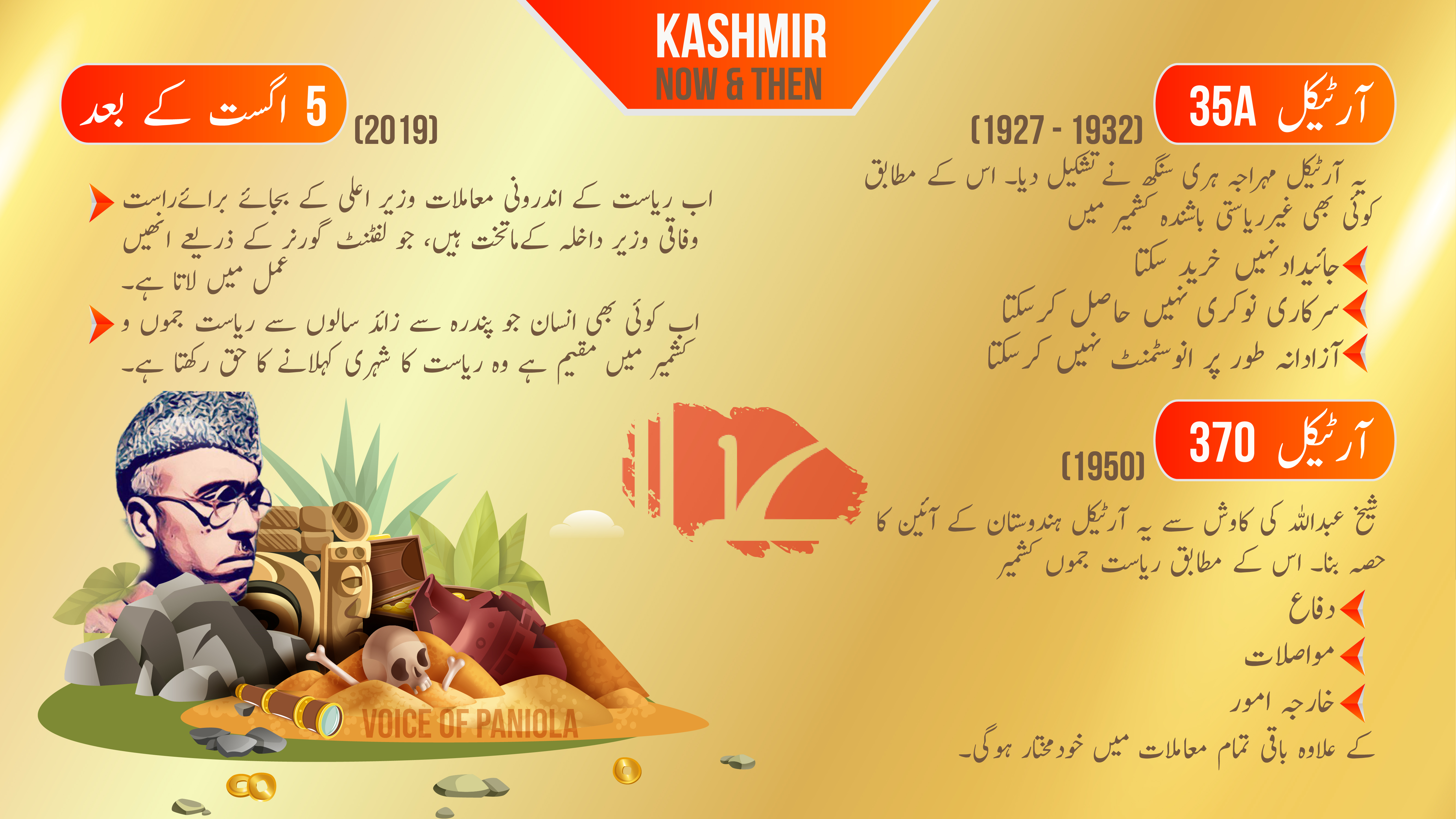In the past, the political situation in Kashmir was shaped significantly by the presence of Article 370 and 35A in the Indian Constitution. These provisions granted a special autonomous status to the state of Jammu and Kashmir (J&K), providing it with a distinct constitutional framework.
Under Article 370, J&K enjoyed a degree of autonomy, allowing the state to have;
- Its Own Constitution,
- Separate Flag,
- Greater Legislative Powers
compared to other Indian states. This provision also ensured that Indian laws were not automatically applicable to J&K, and the extension of laws required the concurrence of the state government.
Article 35A, closely linked to Article 370, empowered the J&K government to define permanent residents and grant them exclusive rights and privileges in various domains, such as:
- Employment,
- Property Ownership
- Welfare Benefits.
This provision aimed to protect the unique identity and culture of Kashmiri residents.
Now: Changes and Current Political Landscape
In August 2019, the political landscape in Kashmir underwent significant changes when the Indian government announced the revocation of Article 370 and the subsequent abrogation of Article 35A. This decision stripped J&K of its special autonomous status, leading to the reorganization of the state into two separate union territories: Jammu and Kashmir, and Ladakh.Following these changes, J&K is now directly governed by the central government of India, with the Lieutenant Governor serving as the administrative head. The reorganization aimed to foster closer integration of the region with the rest of India and to facilitate economic development and growth.
However, the revocation of Article 370 and the subsequent political developments in J&K have sparked intense debates and generated varying reactions. Some argue that the changes will help address the issues of separatism, promote development, and provide equal opportunities to the people of J&K. Others express concerns about the potential impact on the region's unique identity, culture, and the rights of its residents.
The current political landscape in J&K is characterized by efforts to restore normalcy, promote development, and engage with the local population. Steps have been taken to address security concerns, facilitate infrastructure development, attract investments, and ensure the welfare of the people.
It is important to note that the political situation in Kashmir remains dynamic and subject to ongoing discussions and deliberations. The aspirations and concerns of the people of J&K, along with efforts to promote peace and stability in the region, continue to shape the political discourse and decision-making processes.






No comments:
Post a Comment